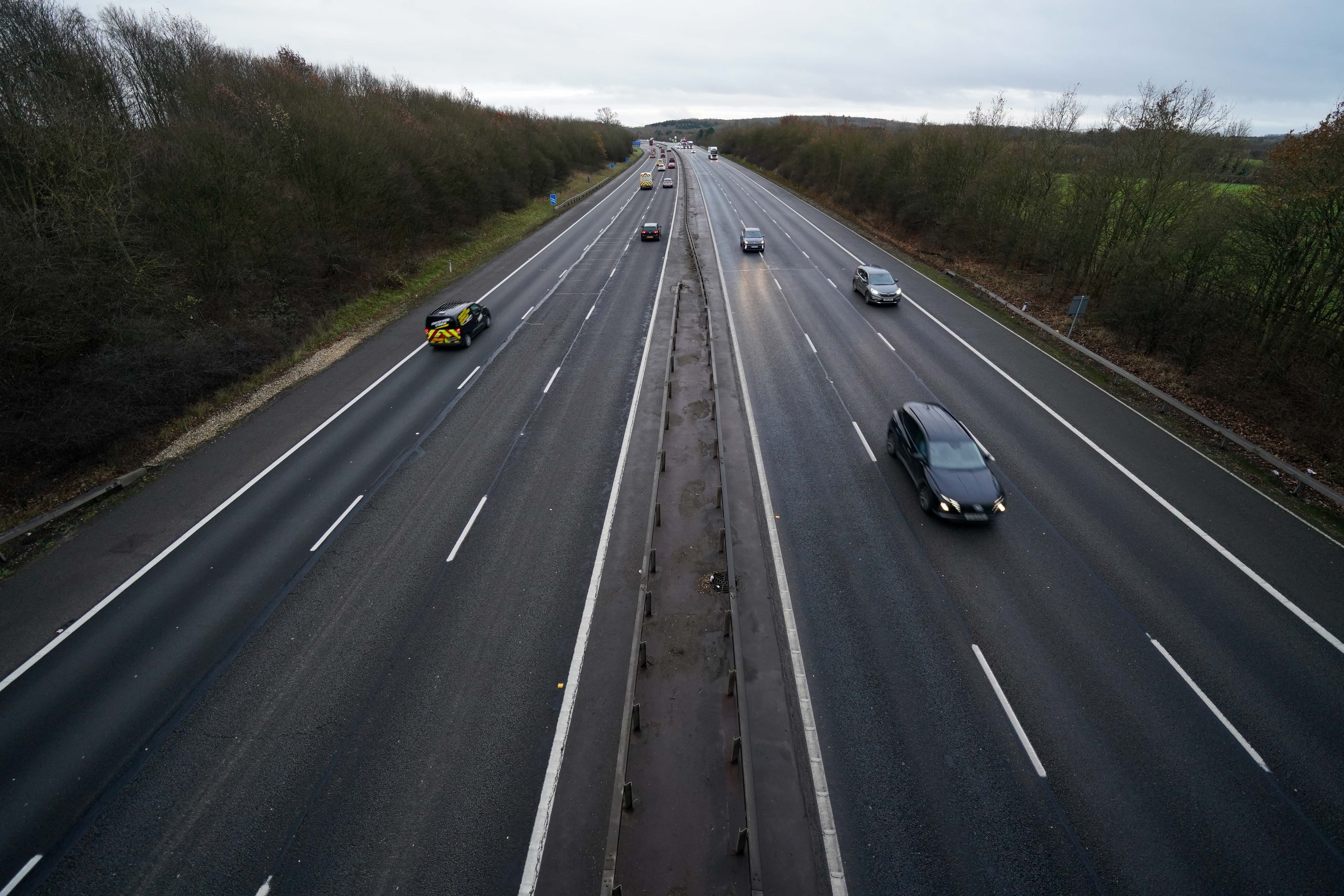Roads and public transport quieter as work from home guidance returns
Several commuters said there was a drop in road traffic and passenger numbers on buses and trains in England on Monday morning.

The reintroduction of guidance to work from home appears to have had an an immediate impact after reports of a sharp fall in transport usage.
Figures from location technology firm TomTom show cities across England experienced a decline in traffic on Monday morning.
In London at 8am, congestion levels were down from 72% two weeks ago to 60%.
Other locations to experience traffic reductions over the same period include Birmingham (from 87% to 55%), Brighton (from 59% to 44%), Bristol (from 60% to 41%), Leeds (from 74% to 43%), Leicester (from 98% to 51%) and Manchester (from 89% to 53%).
The figures represent the proportion of additional time required for journeys compared with free-flow conditions.
Network Rail said footfall at several major railway stations between 6amd and 9.30am on Monday plummeted compared with the same period last week.
Cannon Street in the City of London saw the largest week-on-week decline out of the 16 stations it gave figures for, at 38%.
This was followed by Leeds Central (35%), Waterloo (34%) and King’s Cross (28%).
Other stations where a reduction in demand was recorded include Birmingham New Street (24%), Manchester Piccadilly (20%) and Edinburgh Waverley (11%).
Transport for London (TfL) recorded an 18% reduction in the number of London Underground journeys made between the start of service and 10am on Monday compared with the same period last week, while bus usage declined by 6%.
A spokesman for the transport body said: “The Government’s decision to require people to work from home from today will naturally result in a drop in TfL’s ridership.
“We continue to assess what impact this announcement has on overall ridership levels, and crucially our operating income which relies heavily on fares revenue.”
Tube use up to 10am was at 46% of pre-coronavirus levels, with demand for buses at 71%.
TfL said passenger numbers after 10am are closer to those seen before the virus crisis began.
Several commuters took to Twitter after witnessing a drop in road traffic and passenger numbers on buses and trains.
A woman with the Twitter username @Katycat1960 wrote: “Waiting on my bus to work and the roads are very quiet this morning.
“I think the work from home (guidance) has already kicked in.”
A person with the username @zbris6 posted: “I’m in a flat slap bang in the middle of London and (the) roads are unbelievably quiet now.”
Another Twitter user in the capital, @afcvicki, wrote: “Everywhere is extremely quiet again. Have school holidays started? Or is everyone working from home? No one at the bus stop. No traffic. No people walking. Very weird for a Monday.”
Several people travelling by train to London reported that services were quieter on Monday morning.
A photograph of a near-empty escalator of Waterloo station was posted on Twitter by @lucitelu, with the caption: “Stations are quiet again. This is Waterloo, 9:15.”
Prime Minister Boris Johnson urged people in England to work from home where possible from Monday.
This brought England in line with the rest of the UK.
Bookmark popover
Removed from bookmarks